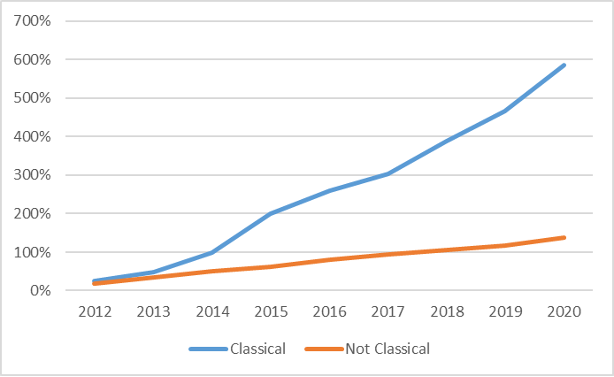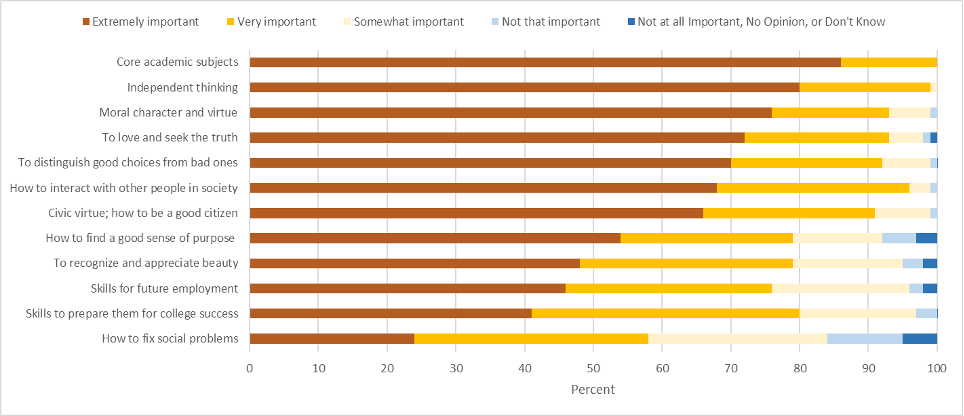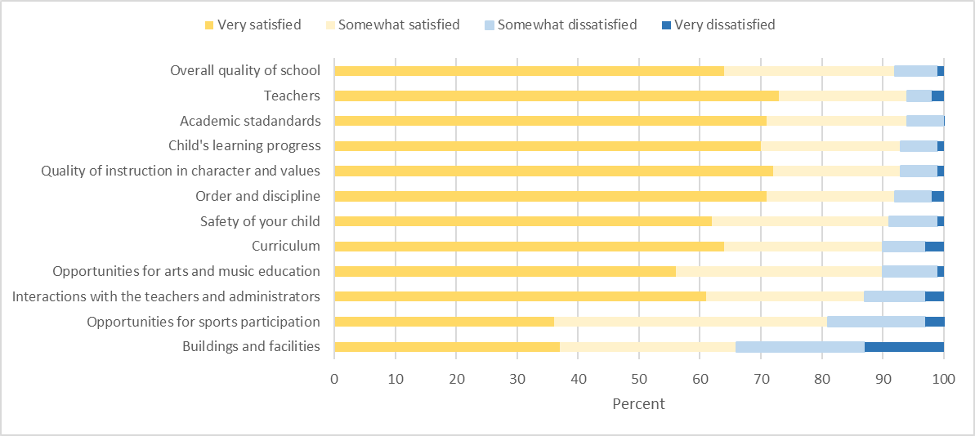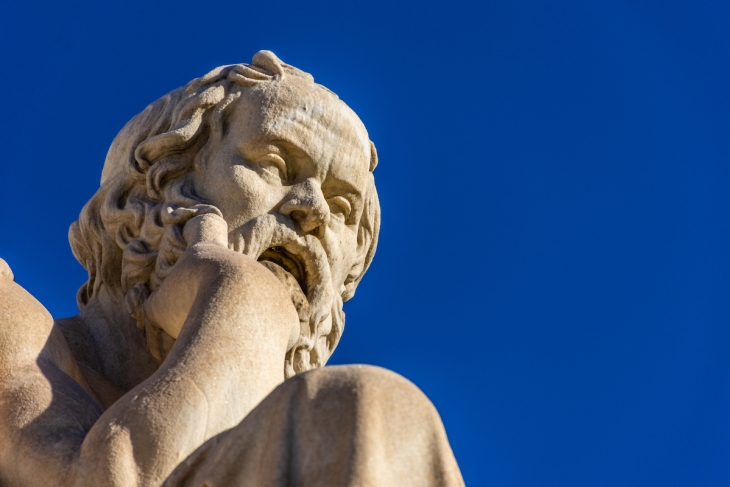Recent shifts in enrollment patterns across Texas school sectors have gone in one direction—out of traditional public schools. Within those shifts, a disproportionately large swath of students has left for classical charter schools. These trends reflect a wider renaissance of classical schooling across the United States. Parents from all manner of backgrounds increasingly sought out classical schools during the pandemic, but also beforehand. And that trend appears to be continuing.
In a new report, we use data from the Texas Education Agency and the National Center for Education Statistics to uncover exactly how much classical charters have grown in Texas since 2011 and the reasons behind such growth.
Texas is home to several classical charter schools. Great Hearts, Valor, and ResponsiveEd operate networks throughout the state. Other classical charters such as Houston Classical and Trivium Academy, though not part of larger networks, are well known in their respective communities.
What do these schools have in common? As Jennifer Frey explains on the Flypaper blog:
On this model, to become educated is, at least in part, to become a person of good character—to become habituated into recognizable patterns of correct thinking, acting, and feeling so that one is disposed to judge and choose well on the whole, in order to live a purposeful and meaningful life that contributes to the common good.
As depicted in Figure 1, Texas’s charter sector has grown dramatically in the past decade. However, the most prolific growth within the sector appears to be concentrated among classical charter schools. While enrollment in other Texas charters doubled between 2011 to 2021, enrollment in Texas classical charter schools increased nearly sevenfold to 20,000 students over the same period. Several thousand students remain on waitlists for seats in them.
The classical charter sector also grew along ethnic lines, with the most pronounced increase for Asian American (a thirteenfold increase) and Hispanic students (a ninefold increase).
Figure 1: Classical charter enrollment increased sevenfold in less than a decade

Note: Authors calculations based on Texas Education Agency data.
Why might parents be drawn to classical charter schools? In our survey of 431 parents of Texas classical charter schools, we asked them to rank twelve different educational priorities according to level of importance from “extremely important” to “not at all important.”
The parents’ priorities appear to match the distinctive mission and educational model of classical charter schools. As shown in Figure 2, all parents believed that instruction in core academic subjects was “extremely” or “very” important, and four out of every five respondents indicated that independent thinking was an “extremely important” priority. Forming students to love and seek the truth was also highly valued among our respondents. The third-most-highly-rated educational priority was the formation of moral character and virtue. In contrast, acquiring skills for future employment, college success, and fixing current social problems were much less important.
Figure 2: Parents’ views about the purpose of education

Note: Online survey data collected by the authors between October 18 and November 30, 2022.
Moreover, classical charter schools seem to deliver the kind of education they promise to deliver. As shown in Figure 3, 64 percent of surveyed parents reported being “very satisfied” with their school overall, and an additional 28 percent reported being “satisfied.” Parents were the most pleased with the quality of their child’s teachers, followed by the academic standards at their child’s school and their child’s learning progress. Over 90 percent of parents expressed satisfaction with how well their child’s school provided instruction in character and values.
Figure 3: Parent satisfaction with aspects of their child’s school

Note: Online survey data collected by the authors between October 18 and November 30, 2022.
Classical charter schools in Texas offer a distinctive education that many parents want for their children, and we suspect that this is also happening elsewhere. Across the country, parents are seeking opportunities for classical education in charter schools, private schools, and through homeschooling.


